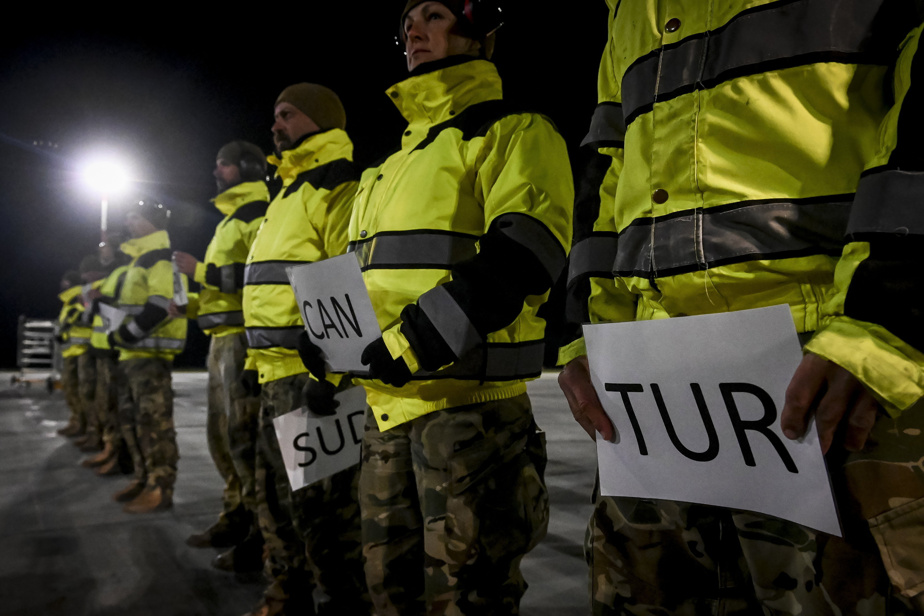As the window for air evacuations of Canadians stranded in Sudan “shrinks”, with fighting closing in on the country’s main airport, the federal government and the Canadian Armed Forces are weighing their options to initiate sea and land extractions .
At a press briefing held virtually on Saturday morning, National Defense Minister Anita Anand said about 375 Canadians have been evacuated from Sudan so far, but some 300 other citizens are waiting to receive help from Ottawa to get out of the fighting-torn East African country.
While two evacuation flights took place on Friday and another is scheduled for Saturday, Minister Anand acknowledged that other means will have to be explored to allow all Canadians stranded in the country to be repatriated.
The military ships HCSM Montreal and NM Asterix, which were due to go to the Indo-Pacific for another mission, were therefore instead ordered to stay close to the country’s largest port, Port-Sudan, “in case they become useful for evacuation efforts”.
Canada also intends to look at what its allies are doing regarding ground evacuations. Minister Anand notably cited the example of the United States, which set up a bus convoy to get around 300 of its nationals trapped in Sudan out of the country.
At the same press briefing, Immigration, Refugees and Citizenship Minister Sean Fraser announced that people of Sudanese origin who are already in Canada will be able to extend their status to stay in the country as of Sunday, and this for free.
These people will also be able to change their status of visitor, student or temporary worker to obtain a work permit free of charge.
On Saturday, despite the ceasefire which was extended for another 72 hours in Sudan, gunfire and heavy artillery fire could still be heard in some areas of Khartoum, the capital of Sudan.
The civilian death toll also jumped to 411 on Saturday, according to the Sudanese Doctors Syndicate, a group that monitors the number of casualties. Also according to this union, some 2,000 other civilians were injured during the clashes.
For 15 days now, fighting between the Sudanese army and the Rapid Support Forces, a powerful paramilitary group, has also left entire neighborhoods of Khartoum without electricity or running water. Citizens sheltering in their homes are starting to run out of food, while thousands of people try to flee the country as quickly as possible.

